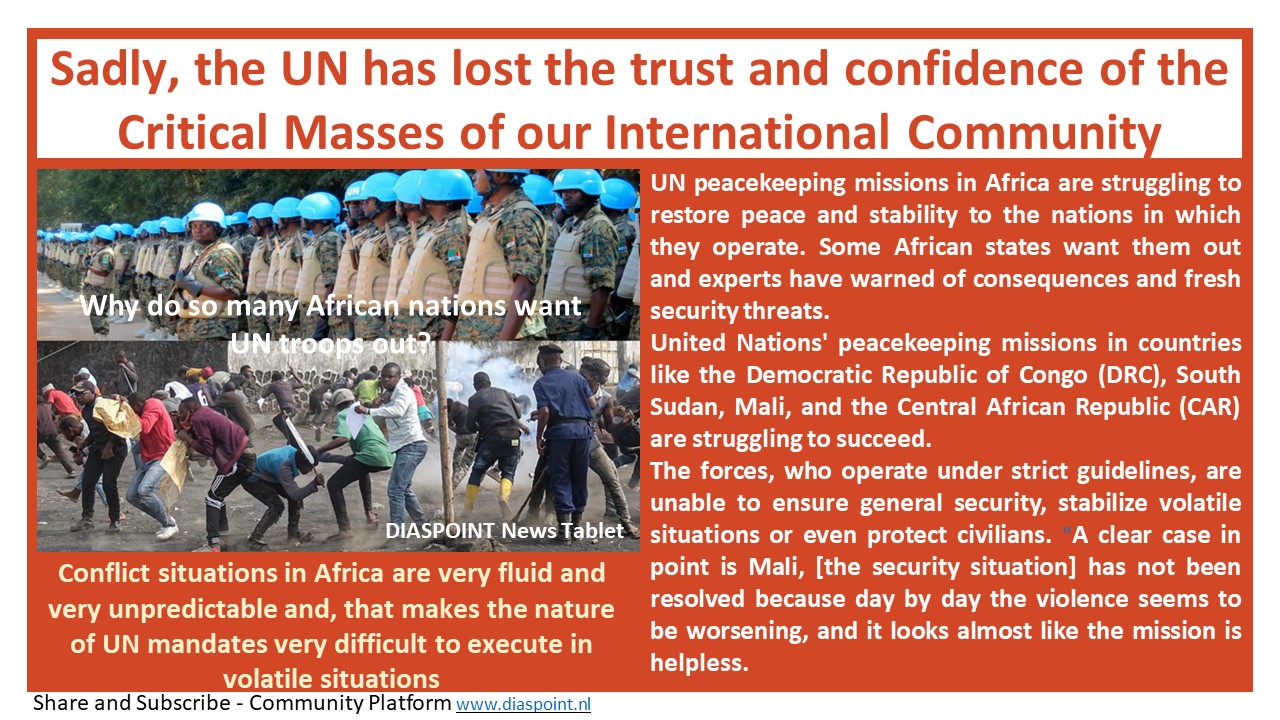Sadly, the UN has lost the trust and confidence of the Critical Masses of our International Community
Post By | July 12, 2023

Why do so many African nations want UN troops out?
UN peacekeeping missions in Africa are struggling to restore peace and stability to the nations in which they operate. Some African states want them out and experts have warned of consequences and fresh security threats.
United Nations’ peacekeeping missions in countries like the Democratic Republic of Congo (DRC), South Sudan, Mali, and the Central African Republic (CAR) are struggling to succeed.
The forces, who operate under strict guidelines, are unable to ensure general security, stabilize volatile situations or even protect civilians.
Some analysts say that such a scenario is far from successful.
Blue helmets ‘overwhelmed by violence’
“They have failed consistently to deal with the cycle of violence in those countries and the very reason for which they were brought in in the first place,” Adib Saani, executive director for the Jatikay Center for Human Security and Peace Building, told DW.
Some missions seem overwhelmed by worsening violence, according to Saani.
“A clear case in point is Mali, [the security situation] has not been resolved because day by day the violence seems to be worsening, and it looks almost like the mission is helpless,” Saani added.
Other experts blame the lack of success on the operational mandates of the missions in Africa, which restricts forces’ activities.
For example, UN peacekeeping operations are not considered tools of enforcement: The “blue helmets” are not allowed to use lethal force except in self-defense or defense of the mandate.
“I wouldn’t say that the UN missions in Africa are all failing, but rather it is the nature of their mandate that limits their efficacy or effectiveness in the areas they are meant to operate,” Fidel Amakye Owusu, an analyst with the Conflict Research Consortium for Africa, told DW.
Complex political and cultural dynamics
Conflict situations in Africa are very fluid and very unpredictable and, that makes the nature of UN mandates very difficult to execute in volatile situations.
“So mostly it appears as if they are not doing their best,” he said. “However, it has to do with the limits of their mandate rather than how effective forces involved or the mission itself is.”
Political instability further complicates matters, according to Saani, who explained that nothing new would be achieved as long as there is a lack of effective democratic systems.
“One of the reasons is political instability: You would only succeed when there is solid commitment politically. If there is no such commitment, it becomes very difficult for them,” Saani added.
The problem rather than the solution?
In Mali, the citizens have turned against the UN peacekeeping mission, accusing forces of escalating tensions.
